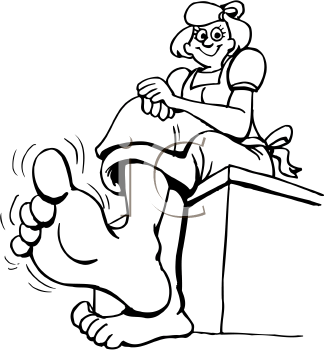
It's beginning to be about that time. We're getting ready to pack up My Diva and send her back to college.
These are some verses I've been thinking about concerning my children:
"Behold, children are a heritage from the Lord, the fruit of the womb a reward. As arrows are in the hand of a warrior, so are the children of one's youth. Happy, blessed, and fortunate is the man whose quiver is filled with them! They will not be put to shame when they speak with their adversaries [in gatherings] at the [city's] gate." Psalm 127:3-5
I'm also getting ready to begin a new school year with Boy Wonder and Princess Butterfly. My Diva has been the guinea pig for higher learning so I can see the areas where my younger two need work.
After the stupidity of the California Governor signing into law a bill to teach gay history, I'm so glad I live in Texas where I can choose how to educate my own children. I am drawing inspiration from other pioneering educators like:
Mary McLeod Bethune
Curriculum at the school started as a rigorous Christian life, having girls rise at 5:30 a.m. for Bible Study, classes in home economics and other industrial skills such as dressmaking, millinery, cooking, and other crafts that emphasized a life of self-sufficiency. Students' days ended at 9 pm. Soon science and business courses were added, then high school courses of math, English, and foreign languages.
Marva Collins
Marva Collins uses the Socratic method, modified for use in primary school. The first step is to select material with abstract content to challenge students' logic, and that will therefore have different meaning to different students, in order to aid discussion. This is done specifically to teach children to reason.
Next, the teacher should read the material, because unknown material cannot be taught. New words, the words to watch, should be listed, and taught, for pronunciation, use and spelling before the material is read. Without this step, the reading is meaningless.
Next, one begins a series of pertinent questions as the reading progresses, starting with a reference to the title, and a question about what the material is about. Predictions should use logic, reasoning and evidence without fallacy. The reading must be out loud, so the teacher can ask questions at pertinent points. Students are taught to test their reasoning. Afterward, they write daily letters to the author or characters, and write a critical review. Why is the work important to them? The child must be taught to refer to what was previously learned to support their opinions.
In the Socratic method, the rate of information is controlled by the teacher. Properly paced, this encourages participation, reducing discipline issues and encouraging self-discipline. The program specifically avoids work-sheets and inane busy work. It establishes an intellectual atmosphere, a general attitude suspending judgment, and examining reasoning.
In the 1990s I was privileged to meet (in Okinawa of all places) the headmaster of The Piney Woods School in Mississippi, Dr. Charles H. Beady, Jr. Morley Safer of 60 Minutes had done a piece on the school. I was so impressed by their committment that the children of Piney Woods would become more than just statistics.
The fourth blessing in the weekday Amidah is a petition for knowledge and insight. It says, "You show favor to a man of knowledge, and You teach understanding to a mortal man. Be gracious to us; a mind of understanding and intellect is from You. Blessed are You, Adonai, Who favors us with knowledge."
Isaiah 54:13 in my three favorite versions of the scriptures.
New King James: "All your children shall be taught by the LORD, and great shall be the peace of your children."
Amplified: "And all your [spiritual] children shall be disciples [taught by the Lord and obedient to His will], and great shall be the peace and undisturbed composure of your children."http://www.blogger.com/img/blank.gif
Complete Jewish Bible: "All your children will be taught by ADONAI; your children will have great peace."
Blessings!

New Friend Friday Link-up






